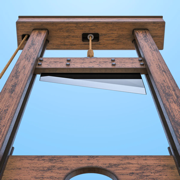|
Kopijeger posted:Perhaps, but "Constantinopolis" is an obviously Greek name as well, and one that it would make more sense to use in the context you describe. It's a Greek name, sure, but it's not the original name (as far as the historical record is concerned). There was an movement in Greece after the fall of the Ottoman Empire in the first world war to reclaim a whole bunch of Anatolia, based on the idea that thousands of years ago, those places were Hellenic. (You can look up 'megali idea' if you're unfamiliar with it.) Calling the city Byzantium calls to mind the fact that the Hellenic people were there first, and then only through the misfortunes of history were they conquered by the Romans and then the Turks.
|
|
|
|

|
| # ? May 15, 2024 14:42 |
|
What did the average Roman do for fun? Have you come across any widespread hobbies that were particularly funny/interesting?
|
|
|
|
Crystal Geometry posted:What did the average Roman do for fun? Have you come across any widespread hobbies that were particularly funny/interesting? Common everyday recreation would probably be either friendly gambling (Dice were favorites) and a visit to the baths in the afternoon. The latter is combined business and pleasure; Everyone visits the baths, it's a full on recreational facility with gym, spa treatment and if you're in Rome itself libraries, parks and slaves running around with light refreshments. And best of all, it's free entrance! I dont think the Circus was open every single day, but otherwise chariot racing was huge in a way matched only by soccer in modern europe, complete with crazy supporters and wild rioting. Gladiator fights and wild hunts were more of a holiday event and very appreciated as well.
|
|
|
|
Gladiatorial games were an evolution of Italian funeral games. Romano-Italian funerary customs are a pretty big and interesting topic we haven't addressed much yet. When someone wealthy or powerful died, a professional artist would visit the body to make a wax mask of the face, complete with colored paints and (possibly) real hair from the corpse. The mask would be worn during the funeral profession by a professional actor who would imitate everything about the dead person, from his walk, to his mannerisms, possibly even his speech. After the funeral, the mask would go into a specially made cupboard that contained all the masks of that family's notable ancestors through history. Each mask was accompanied by written instructions to future generations of professional actors about the person. So a big patrician family funeral profession would employ many actors, with all the family's ancestors being brought "back to life" by actors who specialized in imitating the dead. These actors, along with the living members of the famly and their retainers, were the funeral procession. After this, games and drinks! Fun fact: Of all the many Roman military decorations, only the Grass Crown is believed to have followed it's winner beyond death and onto his funerary mask.
|
|
|
|
physeter posted:Fun fact: Of all the many Roman military decorations, only the Grass Crown is believed to have followed it's winner beyond death and onto his funerary mask. I didnt know that, that's really interesting - are there any theories on why that is?
|
|
|
|
Paxicon posted:I didnt know that, that's really interesting - are there any theories on why that is?
|
|
|
|
Vincent Van Goatse posted:Of course since this is the Roman thread, we should be using a date based on the years since the "founding" of Rome, so happy 2765 AUC everyone I guess. Everything suddenly feels so... futuristic!
|
|
|
|
I've just spent weeks reading through every post in this thread, and wanted to add a sincere thanks to all of you answering questions because its been absolutely super. I've also recently been going through the History of Rome podcasts, and I kinda failed to understand something that you guys might be able to clear up for me. Why was Domitian hated so much? From what I've read about his reign he seemed to be fairly competent - not nearly so much of a villian character as Caligula or Nero (fairly or unfairly) - so I was surprised upon hearing in the podcast that his memory was given the old eraser treatment upon death. Perhaps I missed something but it seemed a bit unjustified, is this a fair assessment? Who did he piss off badly enough to cause all the bad PR after his death? E: and a second, unrelated question. On the topic of the romanization of the provinces, to what extent would there have been a cultural difference (in the late principate lets say) between a Romano-Brit and a Romano-Gaul? How about a Romano-Brit and a Romano-Syrian? Was it very much a case of people adopting the same roman culture, or would roman culture in the provinces have been significantly coloured by the cultures already there? Given that many of these places remained in the empire for centuries and centuries, I've been wondering to what extent they became culturally homogenous. Captain Mediocre fucked around with this message at 01:54 on Oct 11, 2012 |
|
|
Captain Mediocre posted:I've just spent weeks reading through every post in this thread, and wanted to add a sincere thanks to all of you answering questions because its been absolutely super. Any emperor who the Senate didn't like was painted as a tyrannical monster by contemporary authors simply because the authors were almost always senators. He continued the trend of taking away senatorial power, which is a good way to piss them off.
|
|
|
|
|
King of False Promises posted:Any emperor who the Senate didn't like was painted as a tyrannical monster by contemporary authors simply because the authors were almost always senators. He continued the trend of taking away senatorial power, which is a good way to piss them off. Pretty much. He was also kind of a dick personally which didn't help, and he was following Vespasian and Titus. Vespasian was kind of dismissed by the aristocrats for being a rough and lowborn type, but he was widely loved by the people and nobody really disputed that he was a good emperor. Titus was also quite popular and died young, which always gains sympathy. Domitian wasn't a likeable guy in comparison to either.
|
|
|
|
To add to what others have said, Domitian just wasn't big on playing politics and was kind of a poo poo, personally. But he is widely considered to have been one of the most intellectually brilliant of the emperors. His government was smooth, and his reforms set the stage for the 5 Good Emperors period. Much of the peace and prosperity of that period is now being attributed to Domitian. He was an interesting guy. Ruthless, and utterly merciless to his opposition. Despite being born to relative privilege he had no tolerance for corruption or the excesses of senatorial rank, and ran a meritocracy. Even in his own lifetime it was rumored that he'd assassinated his brother Titus to take the throne, but this doesn't seem very likely. The fact is that Domitian probably didn't want to be emperor any more than poor Tiberius did, but once it fell to him his talents were a great service to his people. And according to Suetonius he died fighting, trying to claw out the eyes of one of his assassins.
|
|
|
|
Kopijeger posted:Pretty sure "-polis" comes from the greek πόλις meaning "city". Unless I am gravely mistaken, the Latin equivalent would be "urbs". The name may have been coined by Latin-speakers, but it still seems to be a Greek name. Whichever language the name came from, I think the more important question is this: which would rather have to say over and over again to huge groups of students? Byzantine or Constantinopolitan? Edit: Oh hey, another page.
|
|
|
|
Golden_Zucchini posted:Whichever language the name came from, I think the more important question is this: which would rather have to say over and over again to huge groups of students? Byzantine or Constantinopolitan? Roman. 
|
|
|
|
Grand Prize Winner posted:How much impact did the fall of Constantinople to the Ottomans have on the European voyages of exploration in the 15th-16th (17th?) century? I've heard that when the city fell a buncha Greek scholars fled west, and kinda kicked off the renaissance and so forth. Constantinople fell in 1453. By that time the Renaissance had been going on for a century in parts of Italy.
|
|
|
|
Paxicon posted:Common everyday recreation would probably be either friendly gambling (Dice were favorites) and a visit to the baths in the afternoon. The latter is combined business and pleasure; Everyone visits the baths, it's a full on recreational facility with gym, spa treatment and if you're in Rome itself libraries, parks and slaves running around with light refreshments. And best of all, it's free entrance! You mention the gym, are there any surviving records of what sort of exercises the Romans used for physical fitness? Going from the the over-muscled depictions of the male body in their art was it possible they had some concept of muscle development/bodybuilding? Hearing about the fitness habits of ancient cultures always strikes me as extremely interesting in how different or similar it can often be to ours.
|
|
|
|
Blut posted:You mention the gym, are there any surviving records of what sort of exercises the Romans used for physical fitness? Going from the the over-muscled depictions of the male body in their art was it possible they had some concept of muscle development/bodybuilding? I would have assumed their eating habits + general lifestyle (military, etc.) would have led to their overall physical fitness being (far?) greater than ours.
|
|
|
|
I like the story (myth?) about the Greek Milo of Croton, who was said to walk around with a baby calf on his shoulders every day. Since the calf would become heavier over time, so would his strength increase. Its perhaps one of the first recorded stories of using progressive resistance exercise? Pliny also has some stories about feats of strength in his natural history in book VII, like one of the bodyguards of Augustus, who reportedly could squat a cart filled with winesacks, or a dude who walked around in a suit of armour weighing 1000 pounds. Im not sure if there is much written material about training. Galen has written about using a kind of dumbbells to strengthen the body, and there is the Gymnasticus from Philostratus, written in the third century AD. There is this mosaic from the Villa Romana del Casale showing a Roman woman lifting weights, from the 4th century AD. 
|
|
|
|
Charlie Mopps posted:I like the story (myth?) about the Greek Milo of Croton, who was said to walk around with a baby calf on his shoulders every day. Since the calf would become heavier over time, so would his strength increase. Its perhaps one of the first recorded stories of using progressive resistance exercise? Hold these weights while I throw this ball at your head. It's interesting that those are instantly recognizable as dumbbells even though it is a depiction of something 1700 years old. I suppose the design is pretty obvious - grip in the middle, weight on each end - because it provides for a high level of grip with even distribution of weight, but I think it's interesting that the basic design has existed for well over 1000 years.
|
|
|
|
It's a bit like the wheel or the arrow. Once you figure out the basic design there's not much left to do as far as appearance goes, since the real changes involve finding better materials to make it with.
|
|
|
|
Also is that a Medicine ball? EDIT: I guess it is! quote:Medicine ball training is one of the oldest forms of strength and conditioning training – the first reference to wrestlers training with sand filled bladders appears in Persia nearly 3000 years ago. In ancient Greece the physician Hippocrates had them sewn out of animal skins and stuffed with sand. His patients threw them back and forth for injury prevention and rehabilitation.
|
|
|
|
Vincent Van Goatse posted:It's a bit like the wheel or the arrow. Once you figure out the basic design there's not much left to do as far as appearance goes, since the real changes involve finding better materials to make it with. Especially if it's something designed to work with human anatomy, since that hasn't changed at all. That's why the Roman surgical tools are mostly indistinguishable from modern ones in form and function. I never saw that mosaic before, that is coolio.
|
|
|
|
Blut posted:You mention the gym, are there any surviving records of what sort of exercises the Romans used for physical fitness? Going from the the over-muscled depictions of the male body in their art was it possible they had some concept of muscle development/bodybuilding? It had a definite class component though. The common slurs against the urbsan poor were A) their ingratitude against their betters B) Their breath reeked of garlic and C) Their disgusting, pale and flabby bodies. Much like today, an exercise regime for beauty and not occasional recreation was the purvey of the wealthy. Oh and the less wealthy practiced wrestling and running as common gym sports. No accesories needed. Paxicon fucked around with this message at 10:55 on Oct 12, 2012 |
|
|
|
Vincent Van Goatse posted:It's a bit like the wheel or the arrow. Once you figure out the basic design there's not much left to do as far as appearance goes, since the real changes involve finding better materials to make it with. Not much left to do? Clearly you need to familiarize yourself with recent advances in Dumb-Bell technology. 
|
|
|
|
Some guys think they found where Caesar was stabbed. http://www.huffingtonpost.com/2012/10/10/julius-caesar-stabbed-curia-pompey_n_1955359.html?utm_hp_ref=science Hmm, I always thought it was a bunch of places.
|
|
|
|
Iseeyouseemeseeyou posted:I would have assumed their eating habits + general lifestyle (military, etc.) would have led to their overall physical fitness being (far?) greater than ours. They were probably more fit than us in that they weren't obese, but to get a body like that of the (idealized) Roman statues you basically need an actual bodybuilding regime as well as a proper, protein-rich diet. Look at contemporary subsistence farmers in developing countries; they're often tough as nails, sure, but they're small and wiry rather than big and burly. Outside of the military and the upper classes, most Romans probably looked more like that than like their statues.
|
|
|
|
Iseeyouseemeseeyou posted:I would have assumed their eating habits + general lifestyle (military, etc.) would have led to their overall physical fitness being (far?) greater than ours. The average peasant Roman was probably in better 'shape' than the average Westerner in physical activities. In the sense that they could move for longer and probably run longer and things like that. Modern food however is basically vastly superior and the fit people of now would be leagues beyond antique or medieval fit. Besides that we are in better health in the sense that we live longer and our bodies can probably take more punishment due to having a lifetime of proper nutrition to fall back on. I'm writing all this from a general nutrition perspective though, if the Romans had something specifically unique to Romanness of the time I could very well be completely wrong.
|
|
|
|
The Roman poor were probably pretty skinnyfat considering they lived on mostly bread.
|
|
|
|
To get through a day in a preindustrial, or even pre-appliance, society requires a lot more effort than is easy for us to imagine, at least for poorer people. Every once in a while it hits me- like when I'm doing laundry I think "Jesus gently caress, this would take me the whole day with the help of three other women." Just getting water from the closest water source can take a long time and a lot of strength. Look to the country poor in e.g. China, India, or most African countries, and you'll find the same kind of lifestyle even including the "living mostly on carbs" thing.
|
|
|
|
Were there lot of different roman breads and other baking stuff? I'd imagine eating would get pretty boring if they didn't vary it up, and with free grain (in the city of Rome, at the least) they would have had an incentive to switch stuff around?
|
|
|
|
I mean I don't know for sure but I imagine the free grain would probably be the shittiest possible and not very varied, no. I'm sure there were different kinds of bread etc. but as usual those would mostly be things rich people ate. Bread in general would be coarser than we're used to, and in cities a lot of people would buy it from bakeries rather than make their own. If you're interested in Roman food, you can look up Apicius' recipe book. Again, it's a very elite example, but that gives you some idea of the general range. Food was really different before sugar and new world foods (tomatoes, peppers, corn, potatoes... tons of things). For more rustic recipes there are some in Cato's de Agricultura which is a bizarre agricultural manual cum almanac sorta thing. He was big on cabbage.
|
|
|
|
There were gourmands in the ancient world, too; in the Deipnosophistae there's an entire chapter dedicated to people going crazy over fish, and Xenophon gives us the only source of a word for people who put too much topping on their bread. There were professional confectioners and bakers. Food had variety in the ancient world, despite not having all the ingredients we have today; actually, there are a handful of ancient ingredients no longer available or identifiable today. There was ancient street food like stuffed octopus, sweet foods using honey, luxury items like eels from Boeotia, and nobody turns down a well-seasoned lamb roast now do they. edit: Here, the bit from Deipnosophistae on how much people loved fish: http://www.attalus.org/old/athenaeus8.html There's a lot of stuff about food in that text, book 10 for example talks about bread-lovers making drinks out of barley, eating contests, etc. Agesilaus fucked around with this message at 18:14 on Oct 14, 2012 |
|
|
|
Which ingredients are gone? The only one I can think of is laser.
|
|
|
|
Grand Prize Winner posted:Which ingredients are gone? The only one I can think of is laser. Sorry, I don't have a list ready. You've already listed laser, but I know there are at least a few other herbs and spices that involve guess-work if they're not entirely lost. If you're interested in ancient China, there are also agricultural treaties like the Di Yuan book of the Guan Zi which contain a lot of plant names, some edible, for which there are guesses. I will think a little and make a note to come back when I next see an ingredient listed that is no longer around. For someone with farming experience, would ancient strains of crops be lost? Also, I know there are assumptions about modern greek grape varieties being the same as those used in certain ancient wines, but I'm not aware of any modern text that seeks to account for every popular, ancient wine. Processed ingredients might not be produced today, at least not in as great variety or with the original recipes, and certain foodstuffs are now illegal.
|
|
|
|
Besides laser, there's a variety of ingredients that are quite disused in the modern-day: spikenard, garum, or lovage for example. There was also the use of rue and tansy, which aren't used now because they are poisonous (natural abortifacients).
|
|
|
|
Oh yeah, speaking about disused and poisonous ones, how about lead.
|
|
|
|
I really wonder why they haven't made some sort of television miniseries set in the Byzantine period, like what they did with the Tudors. The sorts of things that went on during that era would put shows like The Borgias to shame. Why is the eastern empire so poorly represented in our popular culture?
|
|
|
|
Agesilaus posted:Oh yeah, speaking about disused and poisonous ones, how about lead. Didn't the Romans have at least a basic understanding of lead poisoning though? IIRC there was a post earlier in this thread highlighting a Roman document that said "don't use this type of lead (white I believe) in the sewer pipes, it's loving people up".
|
|
|
|
Sleepy Beef posted:Didn't the Romans have at least a basic understanding of lead poisoning though? IIRC there was a post earlier in this thread highlighting a Roman document that said "don't use this type of lead (white I believe) in the sewer pipes, it's loving people up". Yes, they knew lead was poisonous. You're thinking of a quote from Vetruvius. I'm talking about making sweet, concentrated grape syrup. Some Romans preferred to use lead pots, although they also used copper and bronze.
|
|
|
|
karl fungus posted:I really wonder why they haven't made some sort of television miniseries set in the Byzantine period, like what they did with the Tudors. The sorts of things that went on during that era would put shows like The Borgias to shame. Why is the eastern empire so poorly represented in our popular culture? A miniseries set in the Fourth Crusade would be pretty interesting. At least, I would find it interesting.
|
|
|
|

|
| # ? May 15, 2024 14:42 |
|
Agesilaus posted:Yes, they knew lead was poisonous. You're thinking of a quote from Vetruvius. Wasn't it actually the lead in the pots that made it so tasty?
|
|
|
































